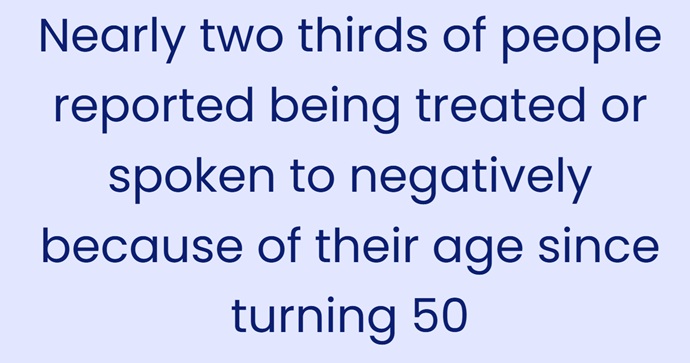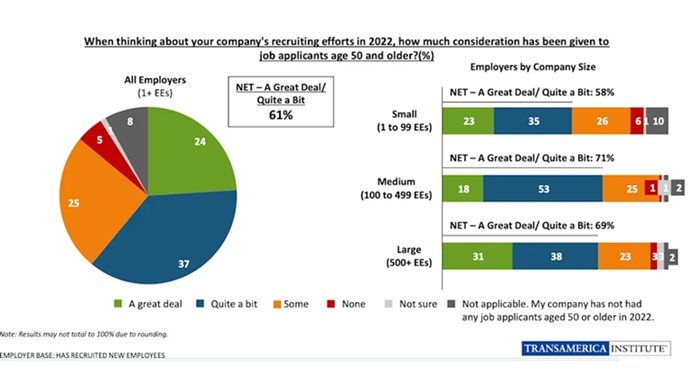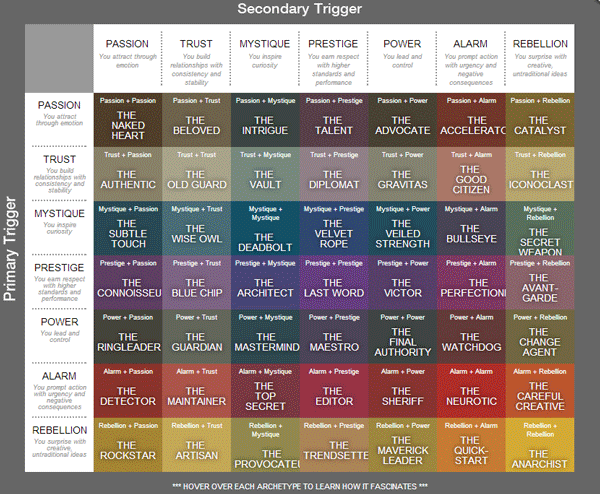Hiring Older Workers Might Save your Company
Small to mid-sized companies are struggling to find good talent today. It might be technology, a shortage of highly trained workers, a unmotivated Gen Z’s, financial stress, along with the wave of retiring baby boomers and more.
Strangely, stats show many company owners aren’t interested in hiring older workers to fill their rosters. They might be hiring with a view to AI technology as if only the younger crowd can leverage them. I use AI, and am eager to use them better for clients.
The discrimination is felt by many during their early 50’s and then gets progressively worse as their age rises. Those managers in their 40’s who practice it, find themselves victims soon enough. It can’t be an easy decision for a VC or entrepreneur to turn away those who might bring experience, expertise along with a good work ethic, because the bottom line is it means reduced talent. This reduces sales, raises costs, and creates a weaker company brand.

By today’s standards, 50 is not ancient, and in fact, many workers, particularly intellectual workers are in their prime from 50 to 70. With AI tools available, this age group has the power to capitalize on their many talents and skills.
Those over 50 are faced with the challenge of being unemployed or going without consulting or temporary work. On one hand, it’s a real threat to their lives, while on the other, they have a breather period where they can regroup, get trained or positioned for their next role. Initially, retirement or unemployment provides some rest, rejuvenation, and reorientation. Rather than tossing all 55+ workers into the “unwanted basket,” managers and entrepreneurs should look closer at what each senior might offer and how to leverage that excellent value.
As the technology industry is known for being highly age-biased, as, for example, 76% of surveyed tech workers in the US agreed that ageism exists in their industry, there is a high risk that other industries may also become more ageist as AI and other digital transformations continue to expand. This underscores the critical need for research on effective prevention measures to counteract the strong negative stereotyping and following exclusion of older workers in digitalized settings — as reported in Science Direct research.
And for older workers, a new position in a new industry can be very emancipating. In a new environment, they might thrive, contribute, and produce at very high levels. They can be your best hire possible if supported properly.

Why Would you Hire an Older Worker?
It depends on each of them, because they’re all unique. Some have great work experience, others tremendous learning potential, while others are great team players, stable, mature, reliable and a good presence in the workplace. They’re a big asset in many ways.
 But the view or concept hirers have of older workers is grossly outdated. I myself am old, yet very fit and vital. I mountain bike every other day 15k to 35k, sprint at a local park, and walk every day. My skills now are better than ever, and my AI skills are quite good too. I wrote my latest book when I was 56 and it was a lot of work. Today, having AI do much of the research, helping with organization and clarity would make writing a book much easier.
But the view or concept hirers have of older workers is grossly outdated. I myself am old, yet very fit and vital. I mountain bike every other day 15k to 35k, sprint at a local park, and walk every day. My skills now are better than ever, and my AI skills are quite good too. I wrote my latest book when I was 56 and it was a lot of work. Today, having AI do much of the research, helping with organization and clarity would make writing a book much easier.
I’m not the usual senior, but many hirers will put everyone in age baskets, denying them who they really are and what they can do. That’s unfair and simply not wise if you want to build a great company. In some cases, managers have the policy of not hiring anyone older than themselves, fearing their workers wouldn’t take them seriously in the presence of the older person. But this reflects a crisis of confidence for those managers, something that owners need to address.
The claim that older workers will need to be ‘retrained” might not be as bad as thought. The retraining period might not be extensive perhaps like going to the gas station to refuel your car. And how they feel about retraining is largely determined by your attitude toward it. Training should always be presented as a fun opportunity to grow and build competence – a positive picture of happy employment.
If someone is talented in one role, sector or industry, they’ll likely be the same in another. It isn’t the work, it’s them! They are prolific. If you’re hiring only to fulfill an immediate role, with someone with immediate relevant skills/training, then you’re not thinking long term. Because over many years, some people leave while others just get better. Gen Z’s for instance don’t last long with any one company. They’ve got ambitions and often leave soon to acquire the next pay level or work experience. That’s not productive for your company.
Best Reasons to Hire an Older Worker
- Work and life experience creating patience and mindfulness
- Work-ready and able to get up to speed with new employer or client faster
- Honed interpersonal skills through decades of working
- A desire to help and teach others (team player)
- Refined thinking skills — such as critical thinking, problem solving, and determination
- Versatile – often having many skills to offer
- Personal stability combined with confidence — helps to strengthen your company’s brand reputation and is better with key clients
- Take their job seriously — Strong work ethic and loves to work
- Multigenerational teams make your environment stronger and versatile
- will make fewer errors given they’ve had their mistakes already
Any company that limits itself to a narrow age range is vulnerable to technological, cultural, and business changes. If your business is in real estate or travel for instance, your customer/client base might vary in age from 18 to 70. Staying diverse in your age range is a solid practice to keep in tune with a broader potential customer base.
The Misconceptions of Hiring Young
What’s really at play regarding age discrimination is the belief that younger workers are better, education updated, and that they’ll usher in a new wave of productivity and “hipness” that might somehow give their office or company a brand lift.
In truth, age diversity can be more hip and generate more reliability, more customers, and make your workplace feel more natural, authentic and not a clique. While many older workers enjoy working with younger people, so too do younger workers enjoy the leadership and stability of older team members.
Older workers’ value proposition isn’t just experience. It’s a performance characteristic that becomes part of their new role in your company. To customers too, our presence shows good, sound judgment and that you’re not a fly-by-night operator, soon to fizzle out after the next tech wave.
Customers/clients notice the makeup of your company and that impression will affect their decision-making. It’s hard for any customer not to get the message of value when older, experienced, talented and hard-working people are ready to serve them. It’s an impression of a company that is tuned into them and has the full capacity to keep delivering.
Hiring Better
Older workers aren’t as old as you think. Many are still vital, sharp and productive and will make a substantial contribution to your small business. You still need a good match for the role and the company, but age shouldn’t be a defining factor. An increasing number like myself will be working for a long time forward, because work is meaningful and rewarding in many ways.
Find out more about travel marketing services and real estate marketing services that can help you reach more customers, engage them better, and generate a boost in long-term profitability.







